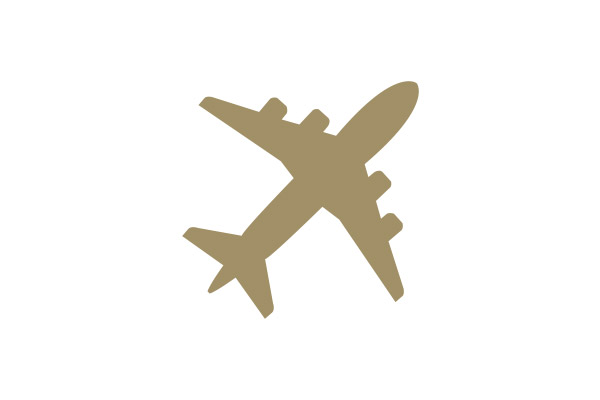The Boeing 737 MAX aircraft has been grounded globally for almost a year. With the aircraft not expected to return to service until mid-2020, we reflect on its impact in 2019 and the potential repercussions for the year ahead.
MAX unlikely to feature in airlines’ summer schedules
Following the global grounding of the 737 MAX, driven by issues with the MCAS flight control system, Boeing has been working tirelessly to get the aircraft recertified and back in the air.
Although much progress has been made, it will be several months still before we can expect to see the first MAX return to service. Additional findings on the aircraft, including issues with the wiring harnesses and an indicator light, need to be addressed; certification flights need to be conducted by the FAA, additional pilot training requirements need to be scoped and implemented, upgrades need to be made to the aircraft following the issuance of an Airworthiness Directive, and various aviation authorities need to follow the FAA’s lead in ending the grounding.
Accordingly, the MAX’s return to service date is not expected before mid-2020. Once the aircraft is given the green light to return to service, it will still take well over a year to clear out the backlog of aircraft currently stored at Boeing’s facility and return them into the schedules of their operators. For a second consecutive year, the MAX is unlikely to feature in airlines’ summer schedules, the peak travel season in Europe and various other markets worldwide.
How Have Airlines Coped in 2019 and How Are They Expected to Cope this Year?
In light of the grounding, airlines have managed to secure replacement capacity for the vast majority of their planned schedules last year. As discussed in our article last summer, airlines have responded to the groundings in one of three ways:
- Airlines have deferred fleet retirement and rollover plans, extending operating leases and deferring the retirement of internal fleets
- Airlines have shored up summer capacity gaps by securing ACMI leases to fulfil their additional capacity requirements and protect market share
- Airlines who have been unable to secure capacity via the previous two options have had no other choice but to scale down their schedules
We expect 2020 to follow much the same path as 2019, with a few subtle differences in market behaviour. The avenue for extending aircraft leases has largely been tapped in 2019 and, as a result, the vast majority of 737-800s that would have become available, or any narrowbody equipment for that matter, have already been placed or had their leases extended.
Airlines who are looking to add additional capacity to their fleet will find it extremely challenging to source aircraft on operating lease or for purchase, and will be left to consider either the ACMI market or cutting back their summer schedules.
We are already seeing an extremely active 2020 ACMI market, with carriers securing summer capacity far earlier than in 2019, in aims of locking in the more attractive aircraft at reasonable rates, rather than get caught late in the season with limited supply and tough pricing. Unfortunately, the MAX’s absence from service cannot be fully compensated by replacement capacity, as there are a finite number of replacement aircraft in relation to the market’s continued demand growth. As a result, we are seeing unprecedented levels of demand for narrowbody aircraft, both for operating leases and ACMI leases.
Airlines Reconsidering their Long-Term Fleet Plans
Despite the short-term moves airlines have been able to employ in securing replacement capacity, repeated extensions to the MAX’s projected return to service date and uncertainty around the related timeframe have left MAX customers to reconsider more significant strategic decisions. The situation has prompted traditional low-cost carriers (LCCs), who adhere to the single aircraft type mantra, to review the risks inherent in a uniform fleet, such as the MAX’s current issues with its type certification.
Some LCCs are considering deviating from this cornerstone of their business model and looking to diversify their fleet mix as a means of reducing this risk, despite the complexity it would add to an otherwise streamlined fleet. Flydubai, Emirates Airlines’ regional partner, currently operates a single-type fleet of Boeing 737s (-800s and MAX 8s), with more than 100 MAX 8 aircraft on order. While the airline has not taken steps to cancel their MAX orderbook, the Chairman and CEO announced that they have started to consider the option of replacing the MAX order with Airbus A320neos.
Impact of the MAX Groundings on Boeing
The grounding of the MAX has undoubtedly had a significant impact on Boeing and its position in the market. The world’s largest plane maker has provisioned almost $19 billion in financial compensation to customers and disruption to the halted production line; and in 2019, has incurred its first annual loss in more than two decades and a negative net orderbook.
Despite this, Boeing has been taking positive steps towards retaining investor and public confidence in the company and its ability to bring the aircraft back into service later this year. Internally, the manufacturer has made several management changes, including its head of commercial airplanes division and most recently, it’s CEO, replacing Dennis Muilenburg with David Calhoun.
While Boeing is focused intently on resolving issues surrounding the MAX, and understandably so, the fallout from this crisis will surely have an impact on Boeing’s other strategic initiatives; the much-anticipated launch of the New Midmarket Aircraft (NMA), the timely certification and entry into service of the 777X, as well as the success of its joint venture with Embraer, Boeing Brazil – Commercial.
Revisiting lease rates and value forecasts
The grounding of the MAX has created a shortfall of supply in the narrowbody aircraft market as carriers look to fulfil their capacity requirements. Lease return dates have been extended and any aircraft that have become available have been quickly remarketed, at strong rates. As a result, all other narrowbody types have witnessed a surge in demand and the values and lease rates of older or less desirable types have been retained, at least in the short term.
For those airlines who have not been able to address their MAX coverage with lease extensions or replacement aircraft, or who do not wish to make long-term fleet commitments for a short-term problem, the ACMI leasing market has been a vital means of bridging the capacity gap.
2019 has seen possibly the strongest ACMI summer season on record, with pricing reflective of the uncharacteristically high level of demand for ACMI aircraft. With Boeing’s latest update pushing the expected MAX return to service date into the second half of 2020, this summer will likely see a repeat performance. Airlines are reacting accordingly, with much of the summer ACMI supply already absorbed from the market, and ACMI pricing rising correspondingly.
In the long term, it is expected that the MAX will return to service and although there are short-term challenges being faced by the programme, appraisers have not revised their value forecasts and they remain confident in the ability of the MAX to hold onto its long-term value projections.
ACC Aviation – Charter, Leasing and Aviation Consultancy
We are ACC Aviation – a global aviation service provider for the wet leasing, aircraft charter and aviation consultancy sectors.
Get in touch with our aviation experts – make an enquiry or call +44 (0)1737 232 237.





